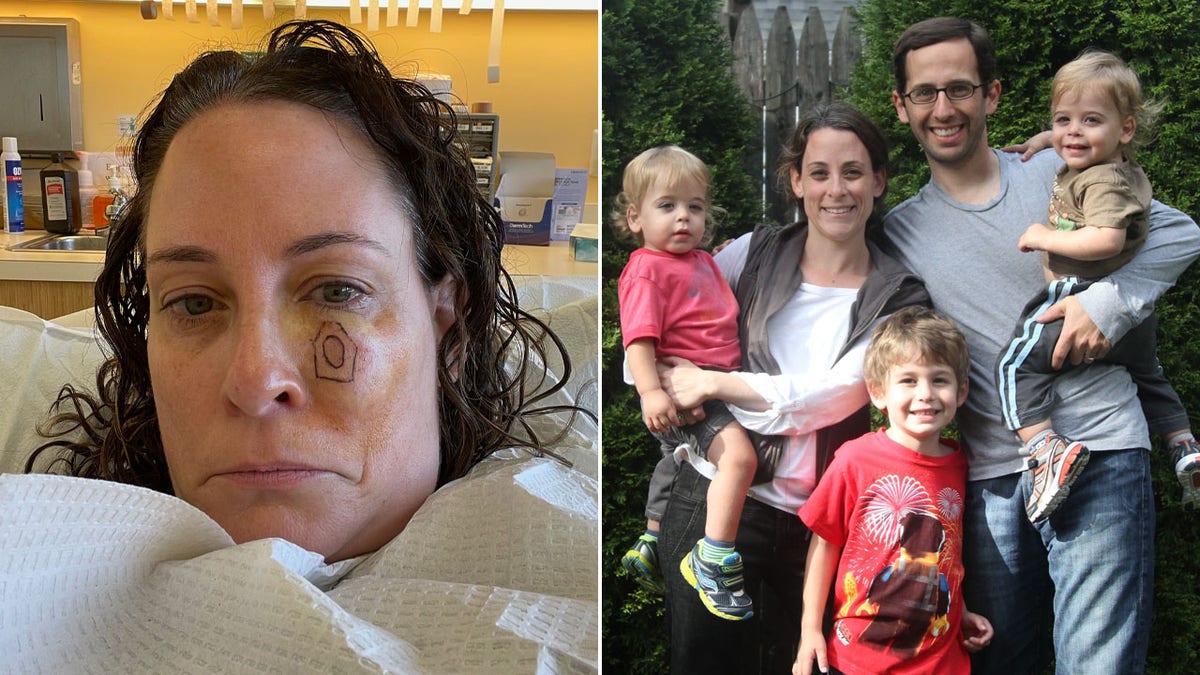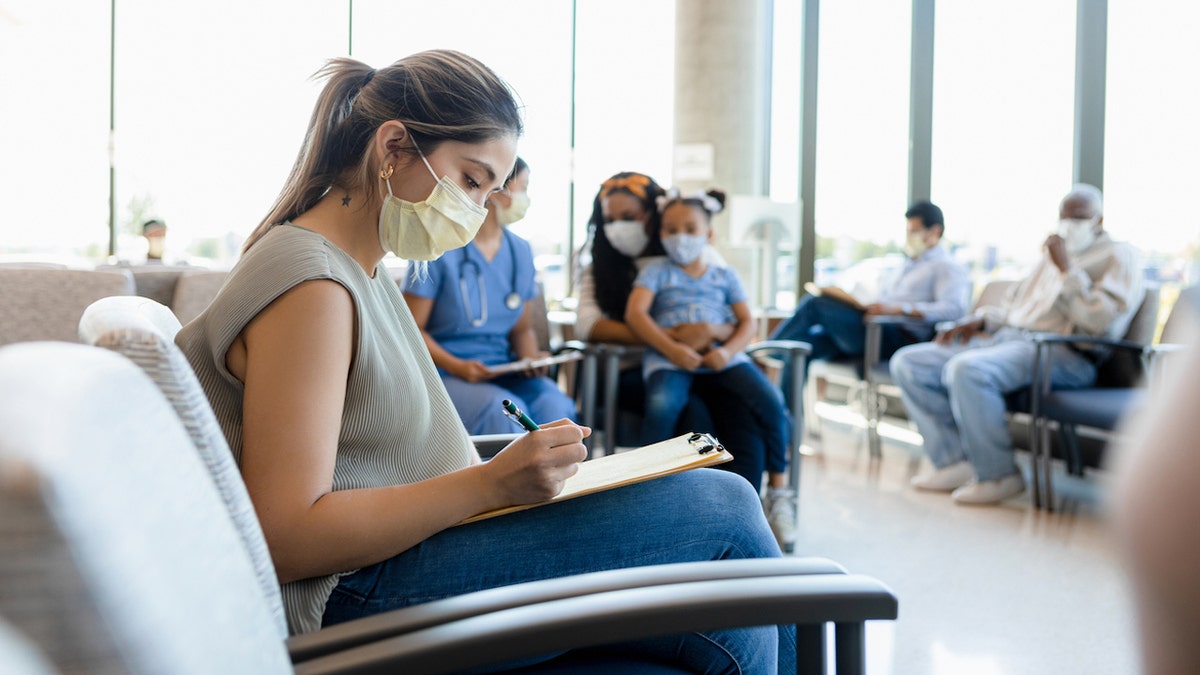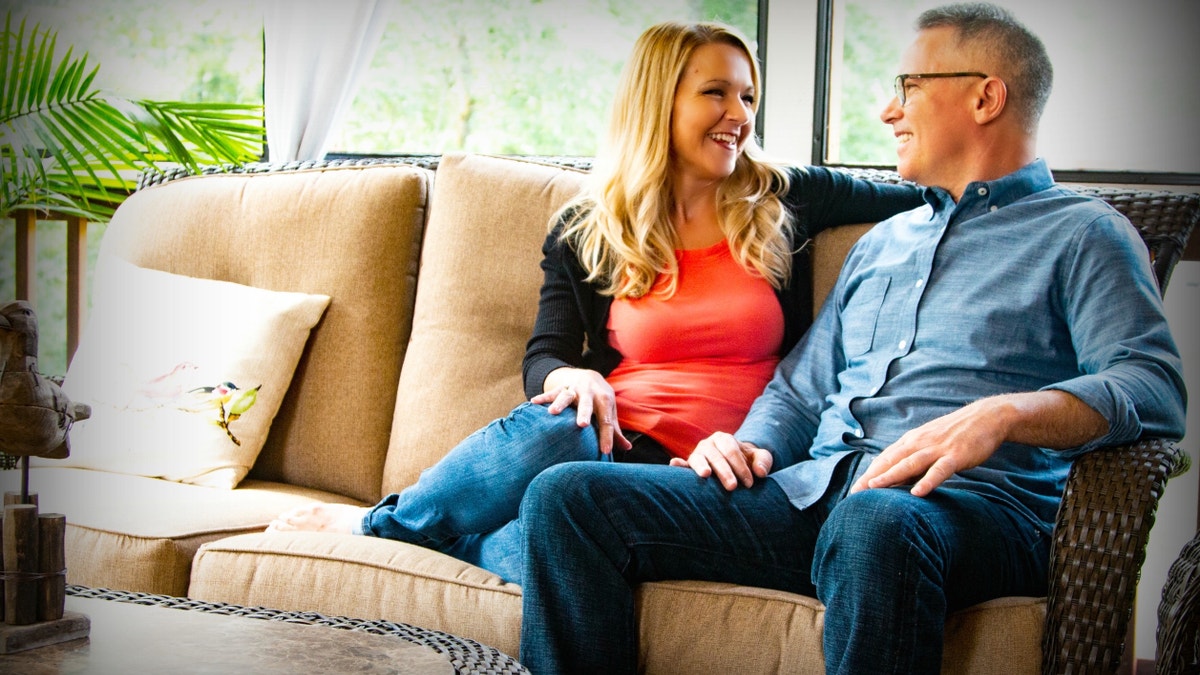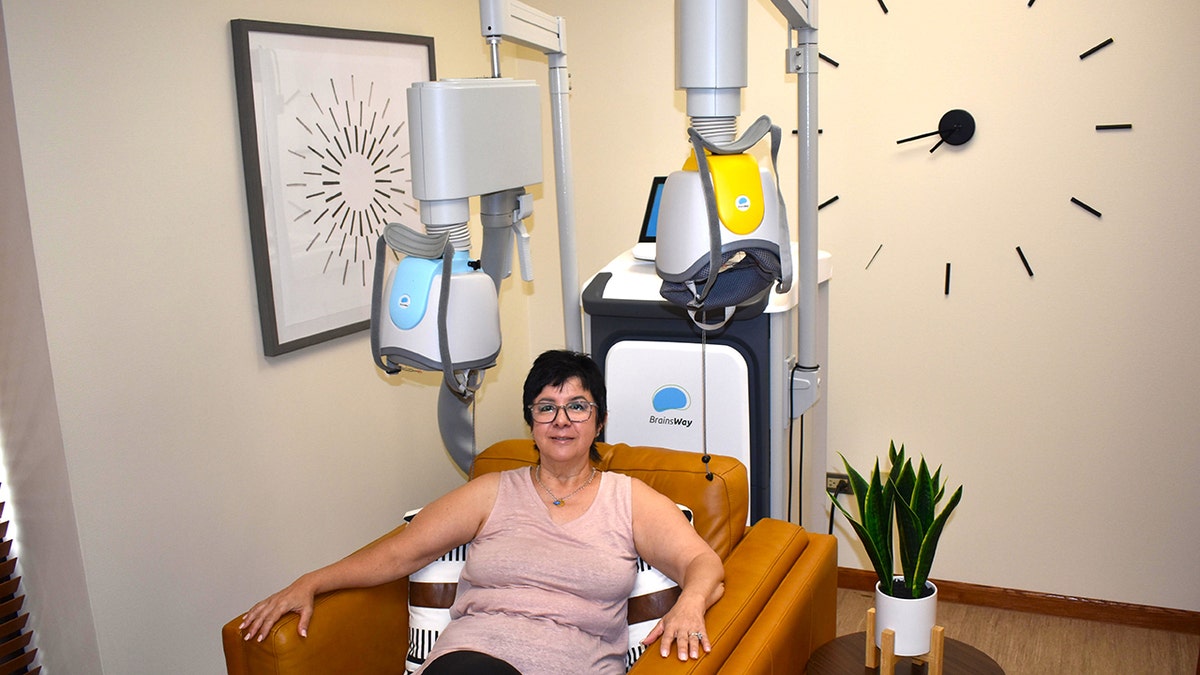Health
A Number That Should Guide Your Health Choices (It’s Not Your Age)

At her annual visit, the patient’s doctor asks if she plans to continue having regular mammograms to screen for breast cancer, and then reminds her that it’s been almost 10 years since her last colonoscopy.
She’s 76. Hmmm.
The patient’s age alone may be an argument against further mammogram appointments. The independent and influential U.S. Preventive Services Task Force, in its latest draft guidelines, recommends screening mammograms for women 40 to 74, but says “the current evidence is insufficient to assess the balance of benefits and harms of screening mammography in women age 75 years or older.”
Screening for colorectal cancer, with a colonoscopy or with a less invasive test, becomes similarly questionable at advanced ages. The task force gives it a C grade for those 76 to 85, meaning there’s “at least moderate certainty that the net benefit is small.” It should only be offered selectively, the guidelines say.
But what else is true about this hypothetical woman? Is she playing tennis twice a week? Does she have heart disease? Did her parents live well into their 90s? Does she smoke?
Any or all such factors affect her life expectancy, which in turn could make future cancer screenings either useful, pointless or actually harmful. The same considerations apply to an array of health decisions at older ages, including those involving drug regimens, surgeries, other treatments and screenings.
“It doesn’t make sense to draw these lines by age,” said Dr. Steven Woloshin, an internist and director of the Center for Medicine and Media at the Dartmouth Institute. “It’s age plus other factors that limit your life.”
Slowly, therefore, some medical associations and health advocacy groups have begun to shift their approaches, basing recommendations about tests and treatments on life expectancy rather than simply age.
“Life expectancy gives us more information than age alone,” said Dr. Sei Lee, a geriatrician at the University of California, San Francisco. “It leads to better decision making more often.”
Some recent task force recommendations already reflect this broader view. For older people undergoing lung cancer tests, for instance, the guidelines advise considering factors like smoking history and “a health problem that substantially limits life expectancy” in deciding when to discontinue screening.
The task force’s colorectal screening guidelines call for considering an older patient’s “health status (e.g., life expectancy, co-morbid conditions), prior screening status and individual preferences.”
The American College of Physicians similarly incorporates life expectancy into its prostate cancer screening guidelines; so does the American Cancer Society, in its guidelines for breast cancer screening for women over 55.
But how does that 76-year-old woman know how long she will live? How does anybody know?
A 75-year-old has an average life expectancy of 12 years. But when Dr. Eric Widera, a geriatrician at the University of California, San Francisco, analyzed census data from 2019, he found enormous variation.
The data shows that the least healthy 75-year-olds, those in the lowest 10 percent, were likely to die in about three years. Those in the top 10 percent would probably live for another 20 or so.
All these predictions are based on averages and can’t pinpoint life expectancy for individuals. But just as doctors constantly use risk calculators to decide, say, whether to prescribe drugs to prevent osteoporosis or heart disease, consumers can use online tools to get ballpark estimates.
For instance, Dr. Woloshin and his late wife and research partner, Dr. Lisa Schwartz, helped the National Cancer Institute develop the Know Your Chances calculator, which went online in 2015. Initially, it used age, sex and race (but only two, Black or white, because of limited data) to predict the odds of dying from specific common diseases and the odds of mortality overall over a span of five to 20 years.
The institute recently revised the calculator to add smoking status, a critical factor in life expectancy and one that, unlike the other criteria, users have some control over.
“Personal choices are driven by priorities and fears, but objective information can help inform those decisions,” said Dr. Barnett Kramer, an oncologist who directed the institute’s Division of Cancer Prevention when it published the calculator.
He called it “an antidote to some of the fear-mongering campaigns that patients see all the time on television,” courtesy of drug manufacturers, medical organizations, advocacy groups and alarmist media reports. “The more information they can glean from these tables, the more they can arm themselves against health care choices that don’t help them,” Dr. Kramer said. Unnecessary testing, he pointed out, can lead to overdiagnosis and overtreatment.
A number of health institutions and groups provide disease-specific online calculators. The American College of Cardiology offers a “risk estimator” for cardiovascular disease. A National Cancer Institute calculator assesses breast cancer risk, and Memorial Sloan Kettering Cancer Center provides one for lung cancer.
Calculators that look at single diseases, however, don’t usually compare the risks to those of mortality from other causes. “They don’t give you the context,” Dr. Woloshin said.
Probably the broadest online tool for estimating life expectancy in older adults is ePrognosis, developed in 2011 by Dr. Widera, Dr. Lee and several other geriatricians and researchers. Intended for use by health care professionals but also available to consumers, it offers about two dozen validated geriatric scales that estimate mortality and disability.
The calculators, some for patients living on their own and others for those in nursing homes or hospitals, incorporate considerable information about health history and current functional ability. Helpfully, there’s a “time to benefit” instrument that illustrates which screenings and interventions may remain useful at specific life expectancies.
Consider our hypothetical 76-year-old. If sh e’s a healthy never-smoker who is experiencing no problems with daily activities and is able, among other things, to walk a quarter mile without difficulty, a mortality scale on ePrognosis shows that her extended life expectancy makes mammography a reasonable choice, regardless of what age guidelines say.
“The risk of just using age as a cutoff means we’re sometimes undertreating” very healthy seniors, Dr. Widera said.
If she’s a former smoker with lung disease, diabetes and limited mobility, on the other hand, the calculator indicates that while she probably should continue taking a statin, she can end breast cancer screening.
“Competing mortality” — the chance that another illness will cause her death before the one being screened for — means that she will probably not live long enough to see a benefit.
Of course, patients will continue to make decisions of their own. Life expectancy is a guide, not a limit on medical care. Some older people don’t ever want to stop screenings, even when the data shows they’re no longer helpful.
And some have exactly zero interest in discussing their life expectancy; so do some of their doctors. Either party can over- or underestimate risks and benefits.
“Patients simply will say, ‘I had a great-uncle who lived to 103,’” Dr. Kramer recalled. “Or if you tell someone, ‘Your chances of long-term survival are one in 1,000,’ a strong psychological mechanism leads people to say, ‘Oh thank God, I thought it was hopeless.’ I saw it all the time.”
But for those seeking to make health decisions on evidence-based calculations, the online tools provide valuable context beyond age alone. Considering projected life expectancy, “You’ll know what to focus on, as opposed to being frightened by whatever’s in the news that day,” Dr. Woloshin said. “It anchors you.”
The developers want patients to discuss these predictions with their medical providers, however, and caution against making decisions without their involvement.
“This is meant to be a jumping-off point” for conversations, Dr. Woloshin said. “It’s possible to make much more informed decisions — but you need some help.”

Health
7 important health stories you might have missed this week: Catch up here

Every day of the week, Fox News Digital publishes a range of health pieces to keep you up-to-date on the most important wellness news.
We cover cutting-edge medical research, breakthrough medications, mental health challenges, personal medical dramas and more.
In case you missed them, here are a few of our biggest health stories from this week.
CLICK HERE TO SIGN UP FOR OUR HEALTH NEWSLETTER
You can see a full list of recent health pieces at http://www.foxnews/health.
1. Hunger could be tied to sleep, expert says
If you’re feeling hungrier than usual lately, your sleep routine could be the culprit. A nutritional biologist offers tips for regulating sleep and curbing unhealthy cravings. Click here to get the story.
The food you eat can determine the quality of your sleep, according to experts. Here are the latest findings. (iStock)
2. Health agencies issue bird flu update: ‘Alert, not alarmed’
The CDC and WebMD teamed up this week to deliver an hour-long update on Thursday about the current bird flu outbreak. Fox News Digital breaks down the most important points. Click here to get the story.

Experts assured the public that drinking pasteurized milk remains safe. (iStock)
3. Melanoma patients share their stories
For Skin Cancer Awareness Month, two melanoma patients are speaking up about their symptoms, treatment and prevention tips to help others avoid the potentially deadly disease. Click here to get the story.

Abby Weiner, pictured at left and at right with her husband and sons, was diagnosed with melanoma in Oct. 2023. (Abby Weiner)
4. Report reveals staggering discrepancy in health care costs
Patients with private health insurance could be charged up to 300% more than those with Medicare, a new report reveals. Doctors explain the reasons for the sticker shock. Click here to get the story.

The new report published the names and pricing models of more than 4,000 U.S. hospitals. (iStock)
5. Pastor shares important message about depression
A Dallas pastor who fought his own depression battle shares how he overcame the disease – and why it’s so important for those in church leadership to seek help when they need it. Click here to get the story.

Mark Dance, pictured with his wife, Janet Dance, said he suffered through a three-year period of depression while serving as a pastor. (Dr. Mark Dance)
6. Nurse’s depression is cured through breakthrough tech
A Chicago nurse struggled with COVID-19-related PTSD and depression for years until electrical brain tapping therapy finally gave her a new lease on life. Click here to get the story.

“Had I not had this treatment today, I don’t know where I’d be,” the patient told Fox News Digital. (Melanie Eilers)
7. Young vaper shares warning after nearly dying
A 22-year-old man in Nebraska required a double lung transplant due to vaping. Jackson Allard shares his story as a cautionary tale. “I had a 1% chance to live,” he said. Click here to get the story.

This week’s health stories have included a pastor’s depression journey, the sleep-hunger connection, health care cost discrepancies, bird flu updates and more. (Mark Dance, iStock)
For more Health articles, visit www.foxnews.com/health.
Health
Introducing Our Product Reviews Team, and How We Review | Woman's World

Sign Up
Create a free account to access exclusive content, play games, solve puzzles, test your pop-culture knowledge and receive special offers.
Already have an account? Login
Forgot your password?
Get back to the Sign In
Use left and right arrow keys to navigate between menu items.
Use escape to exit the menu.
Health
What You Should Know About the Military Diet: Experts Weigh In | Woman's World

Sign Up
Create a free account to access exclusive content, play games, solve puzzles, test your pop-culture knowledge and receive special offers.
Already have an account? Login
Forgot your password?
Get back to the Sign In
Use left and right arrow keys to navigate between menu items.
Use escape to exit the menu.
-

 World1 week ago
World1 week agoIndia Lok Sabha election 2024 Phase 4: Who votes and what’s at stake?
-

 News1 week ago
News1 week agoSkeletal remains found almost 40 years ago identified as woman who disappeared in 1968
-

 Politics1 week ago
Politics1 week agoUS Border Patrol agents come under fire in 'use of force' while working southern border
-

 Politics1 week ago
Politics1 week agoTales from the trail: The blue states Trump eyes to turn red in November
-

 World1 week ago
World1 week agoBorrell: Spain, Ireland and others could recognise Palestine on 21 May
-

 World1 week ago
World1 week agoCatalans vote in crucial regional election for the separatist movement
-

 Politics1 week ago
Politics1 week agoNorth Dakota gov, former presidential candidate Doug Burgum front and center at Trump New Jersey rally
-

 World1 week ago
World1 week agoEurope matters to consumers, and so does your vote















